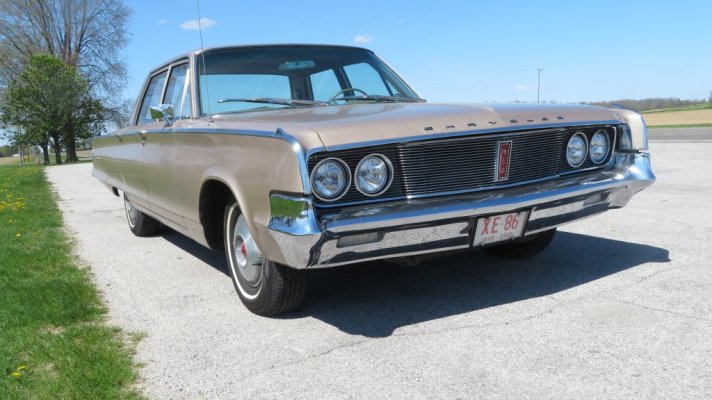One issue, due to the car's age, is the fuel system. Do change the fuel filter and DO change all of the rubber fuel lines between the tank and the carburetor. Other than normal age issues, ethanol'd fuels dry the rubber from the inside out. What might look good can leak next week, for example. There's a short piece at the tank, a short piece under the rh frt passenger floor board, and the rubber at the fuel pump and fuel filter areas. It ALL needs to be new, quality Gates-brand line. DO plan on a new fuel pump, too, and a new fuel pump push rod (with hardened ends) while you're there.
Brakes is another area where "time" can play havoc. Brake fluid absorbs moisture, which is not good for the metal in the brake master cylinder or the wheel cylinders. For general performance, the power brakes can be more touchy than the later power disc brake systems we now have. So unless you want to "eat steering wheel", use less initial pressure than you might be used to, until you get used to the car. The brakes worked well and can work well again, too.
Some might recommend changing to a '67 or '68-spec dual master cylinder, with related lines. Same booster, just change the master cyl and lines to hook everything up. THEN replace the rubber brake lines. 2 on the front and 1 at the rear axle.
Ignition system? The orig system was a "points" system. Which means the ignition points need to be changed every so often. When the cars were newer and points systems were all we had, we could get about 15K miles between changes. Easy to do, BUT also remember to lube the rubbing block on the points when they are changed. Might need to buy a tube of points lube from Summit Racing to get some. Back then, every set of points came with a small vial of such grease, but by the 1980s most had ceased to put the vial in the new points boxes. It is vital to the longevity and less wear of the rubbing block and breaker cam.
Suspension? A good set of HD shocks is all you need for a firm and comfortable ride. Many suspension shops used to scam Chrysler owners by telling them they needed new lower ball joints when they were "in spec" and fine. By comparison, we always took our Chrysler to the local smaller-town dealer and got the alignments. NEVER bought any ball joints, either. Which means they will go past 150K easily with only normal grease additions, from our experiences. Do check the steering linkages, too, but with normal grease additions, they are very long-livefd, too.
Steering? You'll notice how nicely it steers, but possibly with a bit of vagueness "on-denter". THAT is adjusted with a special spanner wrench on the INPUT side of the steering gear, after the lower "rag joint" and "coupler" at the base of the steering column have been checked for age-wear. Adjusting at "the top" of the gear will not affect this issue, from my experience. Play this "by ear".
14" whitewall tires are still around, just have to look for them. Hankook is one brand. P225/75R-14 is the size. About 32psi frt/30psi rr pressures can work well. Maybe 2-3psi more? Plenty of load capacity at those pressures.
Past these things, just normal maintenance and such. In belts and hoses, buy the good Gates Green-Stripe items for best longevity and service.
Might need, as things progress, to get the fuel tank removed and cleaned, or replaced. Usually, the tanks are about $325.00 or so new (shop price). Add in some new fuel lines for good measure (Fine Lines or similar). Be sure to make sure the gauge ground strap/clamp at the fuel sender is grounded on both ends! OR the gauge will not work right.
Might also need to do a complete fuel system "rinse" as a "flush" can cause issues with the heater core. If you also, for good measure, change the block core plugs, no real need for caustic flush chemicals. Might need to also get the radiator cleaned, too.
DO network with the local Mopar club members to seek out places that can do these things AND know what they are looking at on vintage Chrysler products.
Enjoy!
CBODY67



















